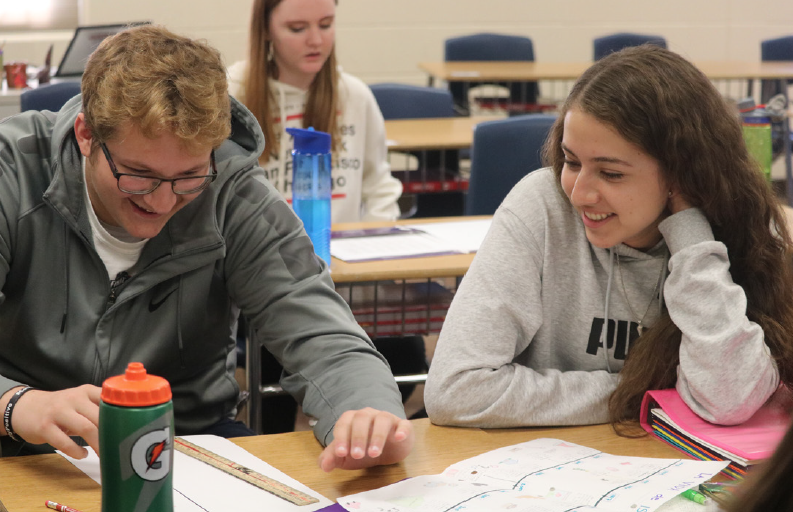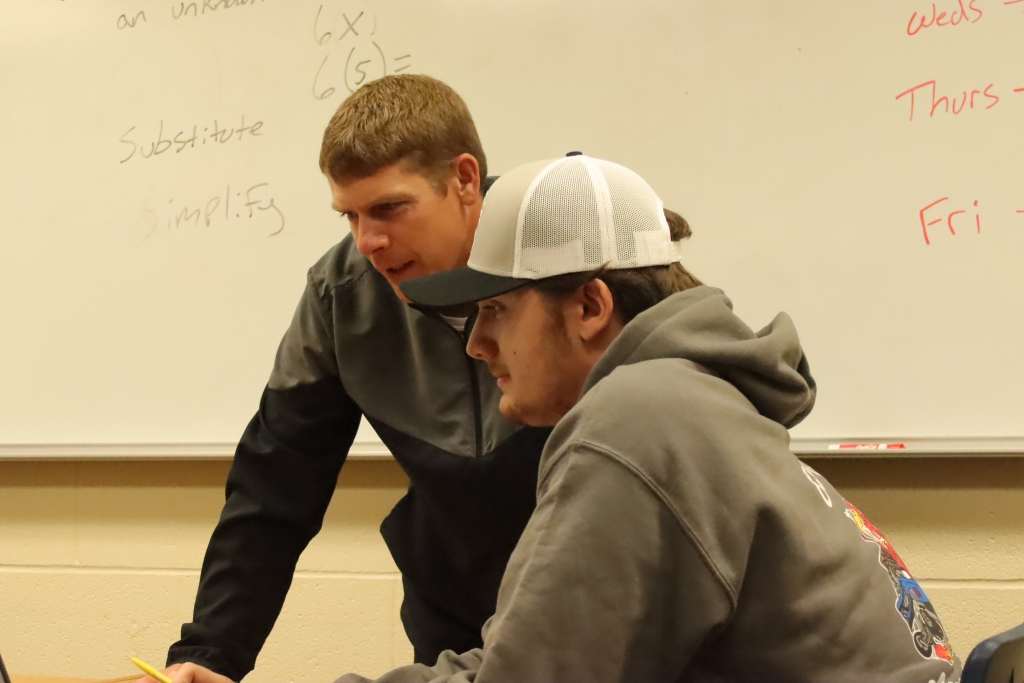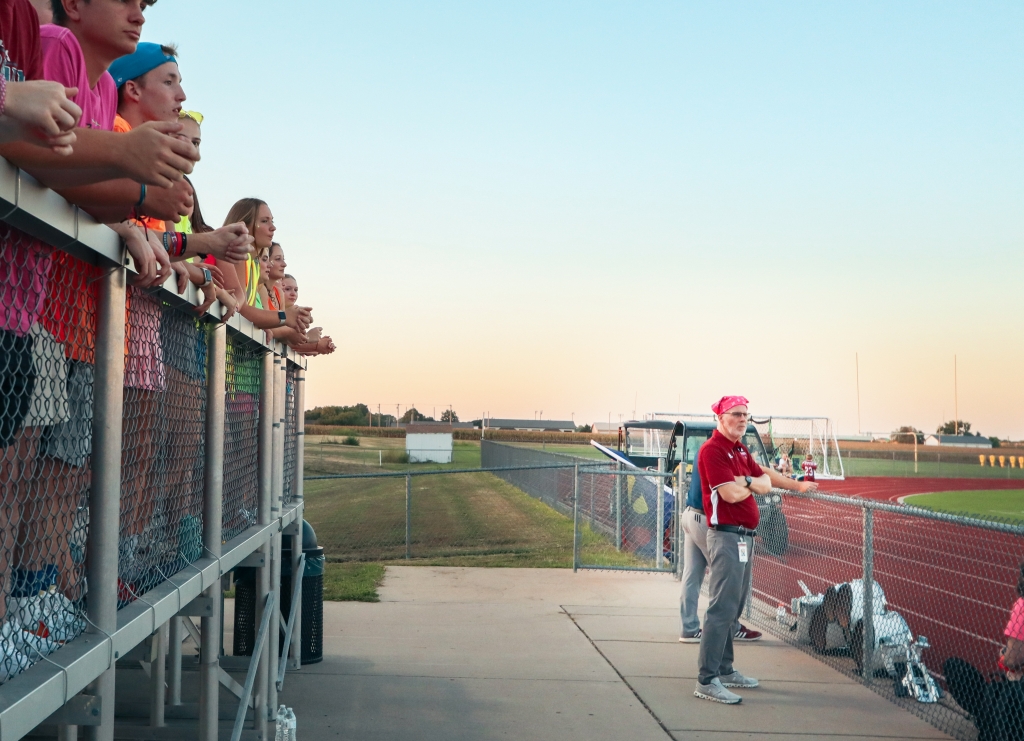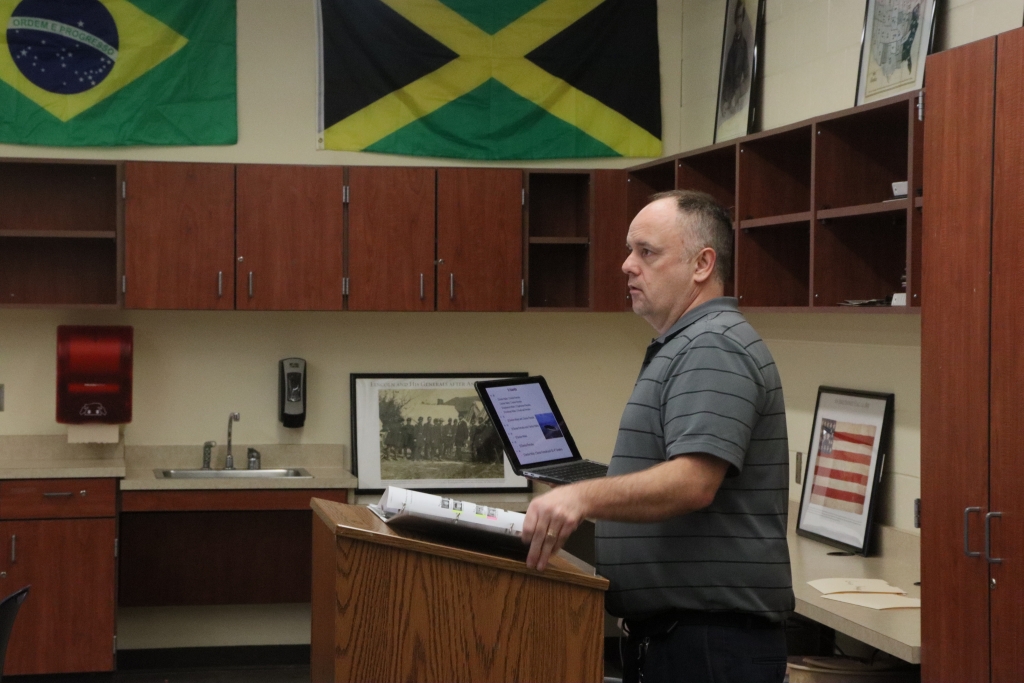Language Barrier

STORY BY VANESSA ROMERO »
New Junior Airam Chavez-Baca was a new student last year. She came from Chihuahua, Mexico. Being a new student who spoke Spanish as her primary language, she had a stressful time adjusting to our school.
“Um… yeah it is hard to speak English,” Chavez-Baca said, carefully choosing her words. Her English is getting much better after a year of practice, but she speaks most comfortably in Spanish.

-Photo by Tristan Heldstab
There are a few Spanish speakers at Eudora High School, either fellow students in advanced Spanish, EHS staff or students who grew up speaking Spanish at home helped translating and making things easier in her classes. After a few weeks of being at Eudora, Chavez-Baca learned basic English words which made things at school go more smoothly. Now a year and a half later, she can keep up with normal conversation and can understand basic instructions from teachers.
Chavez-Baca lives with her aunt, who is bilingual. She teaches her a little bit of English when at home.
Moraima Baca-Gandara, Jr., is Airam’s cousin and this is her first year at EHS. Chavez-Baca helps her cousin throughout the day when she needs it. Since Moraima and Airam are still learning to speak and read in English they usually go to the Spanish teacher or Sra. McQueen, the ESOL (English for Speakers of Other Languages) teacher. She helps the Spanish speakers here at Eudora schools communicate with others that do speak English.
It’s not easy to learn a second language, especially as you get older. Sra. Lancaster, a Spanish teacher at the high school, feels that English is easier to speak since it was her first language. But she loves being a language teacher and finds Spanish intriguing and fun.
She enjoys being able to speak fairly fluently with native Spanish speakers.
In her eyes, Sra. Lancaster thinks it is helpful for students to know some Spanish for future jobs because of the high percentage of people in the U.S. who speak Spanish.
While teaching Spanish, there are assignments that help teach the fluent Spanish speakers, like Chavez-Baca and Baca-Gandara, to get more involved with English.
“It’s exciting to have students here that speak Spanish to motivate other students to speak Spanish in the future,” Lancaster said. She begins class with a discussion opener and the English speakers ask them simple questions to help them get use to our language. Sra. Lancaster explained that Airam and Moraima came to the U.S. with the intent to adapt to speaking English.
Both, Chavez-Baca and Baca-Gandara, agreed that Spanish is easier to speak, considering that is the language they have been speaking since they were young. They think the “language barrier” is hard to pass through, especially because learning a new language in the short amount of time that they speak it at school limits their exposure. Once they get home, they speak Spanish with their family.
Mrs. Pickett had Chavez-Baca in her English class last year. Pickett said that she found it a little difficult to conduct her regular class and stay sure that she was communicating in a way for Chavez-Baca could easily understand at the same time. Often, a student fluent in Spanish, would help translate some of the work while Mrs. Pickett taught everyone else.
When the student couldn’t help out or was missing, Mrs. Pickett used Google Translate. A lot of teachers do this so they don’t mess up and say something else by accident.
Pickett explained that it is hard to teach when you don’t have the same speech. It helped Mrs. Pickett a lot when her class received a translation of one of their books in Spanish for the Spanish speakers.
“The language barrier was challenging,” Pickett said.







